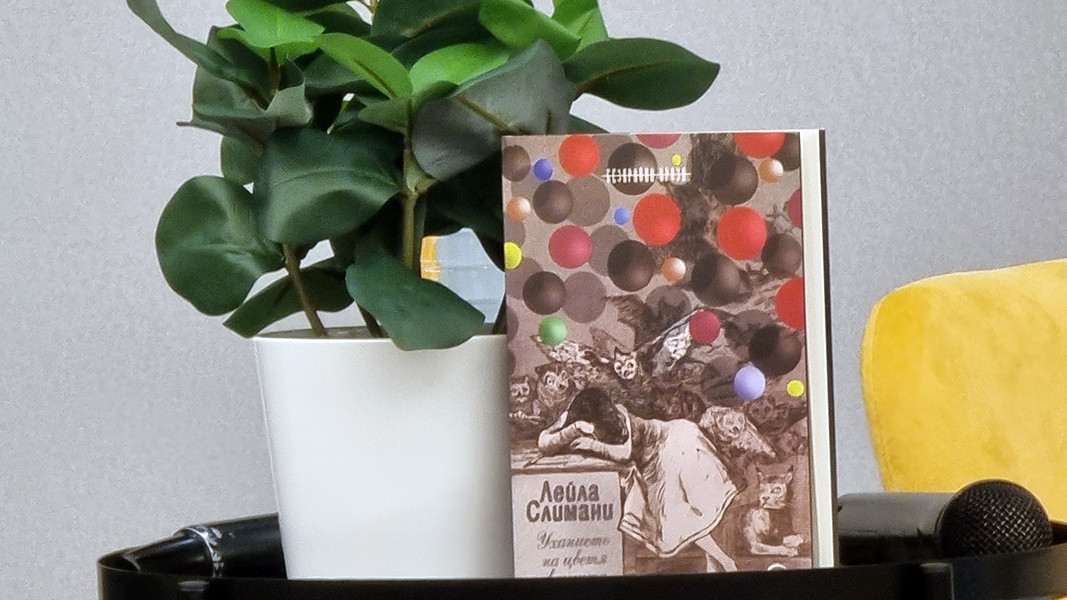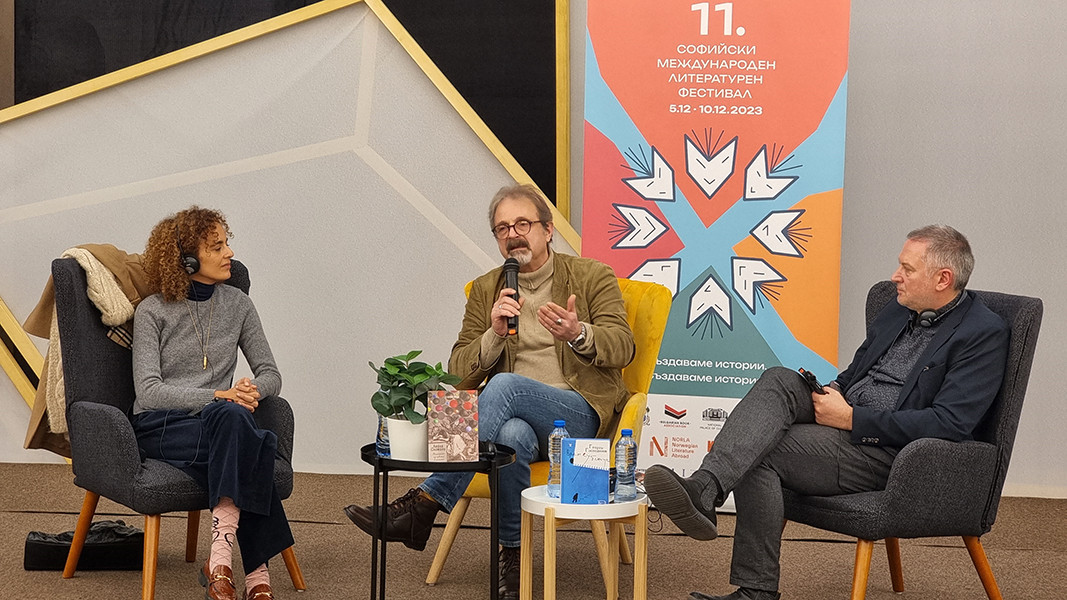Leïla Slimani, the French-Moroccan author was a guest at the 11th edition of the Sofia International Literary Festival. She is one of the most famous writers and novelists in France and the French-speaking countries, winner of the Goncourt prize for her novel Lullaby.
In 2023, the author was chair of the judges for the International Booker Prize won by Georgi Gospodinov and his novel Time Shelter, translated by Angela Rodel.
She is author of a number of highly-popular works, including the Scent of Flowers at Night, recently translated into Bulgarian – a reflection on a sleepless night at the Punta della Dogana Museum in Venice where the author rediscovers herself. It is her third book translated into Bulgarian, after In the Garden of the Ogre and Lullaby.
Writing is a mystery, Leïla Slimani says, possible only in darkness and solitude, but it is also a mirror, showing society its own reflection. In an interview with Radio Bulgaria the author describes where the boundary between literature and the political realm lies:
“Literature, I believe, speaks of our relationship with others, of what it is like to live in a society, so it is bound to be related to politics. Even when we talk about family – it is a political domain. There are few spheres in life that are not political, and because literature spans the entirety of human life it too is bound to be political.”
Literature gives power. It can be a subversive, political or feminist act, Leïla Slimani says – a reading woman has secrets, we do not know what she is thinking. A reading woman is no longer a wife and mother shut up within the bounds of the home:
“Literature is what lends meaning, it takes us back to a form of loneliness,” says Leïla Slimani. “When we read we shut ourselves in. We have an inner life, and it is very important. Literature opens up new horizons. We now longer have what is real, a new reality emerges, and books make that possible.”
What were her first impressions of Georgi Gospodinov’s novel Time Shelter which was awarded the Booker prize?
“I read it straight through, in one day. It is a novel that made me feel comfortable, because it references a world I know and love, and some of my favourite authors. I thought it was funny and very melancholic. It was very touching.”
Like Georgi Gospodinov, Leïla Slimani comes from what might be described as a “peripheral” culture, even though she writes in one of the most widely-used languages, and is holder of the most prestigious French literary award. But should we really be talking about centre and periphery when it comes to literature?
“It seems to me that is how it was 50 years ago, but this is less and less valid. Today the world is expanding. New voices are being heard – from Africa, from Central Europe – and that is a good thing.”
The plot of the award-winning Lullaby, a story about the “perfect” nanny who kills the children in her care, in which people from different classes and worlds come together, was actually inspired by a true-life story, but it also includes biographical elements - the writer says that as a child she came to realize what a domineering position a nanny holds. But how does reality permeate literature?
“Literature does not come from a void, it comes from experience, from books read or films watched. We cannot tear ourselves away from reality,” Leïla Slimani says.
Translated and posted by Milena Daynova
Photos: BTA
On 12 November at 5:30 p.m., Cardinal Pierbattista Pizzaballa, Latin Patriarch of Jerusalem, will give a lecture in the Marin Drinov Hall of the Bulgarian Academy of Sciences, at the invitation of the corresponding member of the Pontifical Committee for..
To mark the 65th anniversary of the Cuban animation studio Instituto Cubano del Arte e Industria Cinematográficos (ICAIC), Bulgarian director Andrey Hadjivasilev conducted a film workshop with students in Havana, the Bulgarian Embassy in Havana..
On this day five years ago (in 2020), a memorial plaque dedicated to the world-renowned Bulgarian bass Nicolai Ghiaurov (1929–2004) was unveiled in Modena. It was in this Italian city that the celebrated opera singer lived and worked from 1981 until his..

+359 2 9336 661
